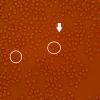Sleep Tracking - Importance of REM, Light...
 Chris_T_Malta
05 Mar 2016
Chris_T_Malta
05 Mar 2016
I have bought a Basis Peak and have been tracking my sleep for a week now. The device provides you with a breakdown of the total number of hours you spend sleeping in REM, Light and Deep Sleep.
It also provides you with a sleeping score which however accounts for the number of hours spent in each state (ie: if you spend more hours in bed, the score is higher).
Since my objective is to spend less time sleeping but spend it in the best phase (deep), then I would like to come up with a score formula which gives deep sleep its due weight. Once I have this in hand, I can experiment with various supplements such as ZMA, L-Try, L-Taurine etc and see whatever results in significant changes.
Anyone can post feedback or ideas or thought on this line of thinking?
 Chris_T_Malta
06 Mar 2016
Chris_T_Malta
06 Mar 2016
Dear All,
This is the xls chart I have to-date based on data from Basis Peak.
The 2 scores: TOTAL and COMBO are based on the following formulas:
TOTAL: REM*1 + LIGHT*1.05 + DEEP*1.25 - TOSS&TURN*1 - INTERRUTION*10
COMBO: %REM*1 + %LIGHT*1.05 + %DEEP*1.25 then the sum is squared, 1 is deducted and multiplied by 100 to get a nice number for comparison purposes
Edited by Chris_T_Malta, 06 March 2016 - 06:58 PM.
 Chris_T_Malta
06 Mar 2016
Chris_T_Malta
06 Mar 2016
The first observation I can make from this n=1 experiment is that the best night of sleep (2/3/16) was achieved when I ate a significant amount of carbs before sleeping. Will post more insights once I get them.
 Polyamine
06 Mar 2016
Polyamine
06 Mar 2016
Carbohydrate fermentation can often decrease intestinal ammonia production in gram negative anaerobes. If this is the case, it may indicate that you need more beneficial yeasts like saccharomyces. Florastor or Ortho Biotic both have viable saccharomyces species.
Reversing this line of thinking, if you have too much intestinal ammonia production, you could have too many gram negative anaerobes like clostridia, enterobacteria, and bacillus to name a few. Yeasts and lactobacilli form very little ammonia and increasing their numbers may be beneficial.
There are many articles discussing carbohydrate fermentation of intestinal microbes, I just grabbed a couple of them.
https://dl.scienceso...racts/76/7/1887
http://jmm.microbiol...222615-13-2-177
If increasing quality sleep is your goal, examining glutamate and GABA levels would seem appropriate.
Edited by Polyamine, 06 March 2016 - 08:20 PM.
 Gerald W. Gaston
07 Mar 2016
Gerald W. Gaston
07 Mar 2016
Basis Peak or similar (esp whe they have sensors for heart rate, respiration rate, body temperature and galvanic skin response, etc.) should provide enough metrics to piece together a nights sleep patterns "somewhat", but they can't compare to an actual EEG device. Many can be adversely influenced by other environmental factor (like motion from a partner turning over in bed).
So althought I do have a "sleep monitor" strapped onto my wrist, I still rely on my ZEO sleep manager with it's head straps. Too bad they went out of business.
For anyone that still has a ZEO but needs headband sensors, see this link for making your own:
http://www.instructa...eadband-Sensor/
I've been chasing more deep sleep for a while now and have improved on it via trial and error. I can say from past experience if you take benzos, esp clonazepam, your time in stage 3 & 4 (NREM) sleep will likely tank. Z-drugs have less interruption of NREM but getting away from such things is best in the long run.
Edit: Typos
Edited by gwgaston, 07 March 2016 - 02:36 AM.



